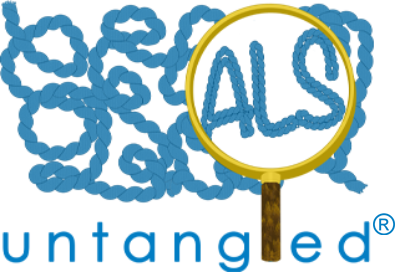Copper
Copper dysregulation may play a role in ALS progression, particularly for the form caused by SOD1 mutations. Given the complexity of this problem, simple copper supplements are unlikely to be useful to PALS with normal serum copper levels. We do not recommend using these. CuATSM, on the other hand, has more promising potential mechanisms of […]
Eric is Winning
In conclusion, we find few plausible mechanisms by which components of the EIW regimen might impact ALS progression, and no pre-clinical or clinical evidence to support using this complicated, expensive and potentially risky treatment. Mr. Edney appears to have had very slow ALS progression even before he started his protocol, and there is no convincing […]
Acuscope
Acuscope appears reasonably safe, but it is not clear that it has a mechanism of action that would be useful to PALS. One person with PLS experienced slightly slower ALSFRS-R measurements while using Acuscope than she did before starting it, but a PALS had slightly faster ALSFRS-R progression during treatment. Since the natural history of […]
GM604
At this time ALSUntangled finds no independently verifiable data supporting the efficacy or even the safety of GM604 in patients with ALS. We believe that independent peer review and replication are fundamentals of good science (36,37). Accordingly, we share the FDA’s April 2015 opinion that the data on GM604 in ALS should be released now […]
Endotherapia
Endotherapia has a proposed mechanism that hinges on the ability of an isolated laboratory’s immunoblots to identify the cause and specific pathways that are driving ALS progression. In our opinion this ability has never been convincingly demonstrated. While there is a flawed animal study supporting the utility of Endotherapia in rats, such studies rarely translate […]
When ALS Is Lyme
The monograph “When ALS Is Lyme” is filled with errors in logic, misinterpretations of scientific papers, controversial statements that are either not referenced or refer to unverifiable anecdotes, and omissions of data contradicting its authors’ opinions. It fails in its attempt to argue that there is a connection between ALS and Lyme disease. At this […]
Low dose naltrexone for ALS
Additional pharmacologic studies of LDN are needed to clarify its mechanisms of action. Some of its proposed mechanisms such as immunomodulation and neuroprotection could potentially be useful in ALS. However, there are no convincing data thus far to suggest that this is the case, and some limited data even raise a theoretical potential for a […]
Stem cell transplants at the Hospital San Jose Tecnologico de Monterrey
We applaud the openness of this clinic in publishing its preliminary results. However, at the present time, there are insufficient safety or efficacy data to support stem cell transplants at the Hospital San Jose Tecnologico de Monterrey as a treatment option for ALS. Also, more rigorous studies are needed to clarify safety and efficacy concerns. […]
